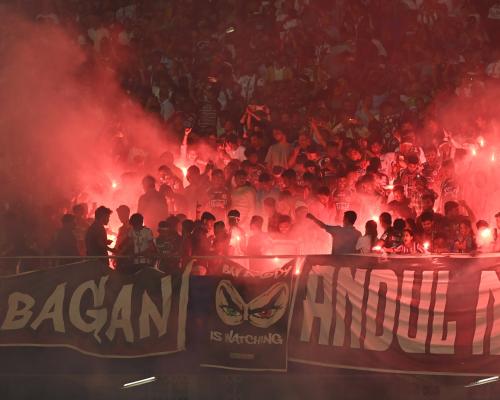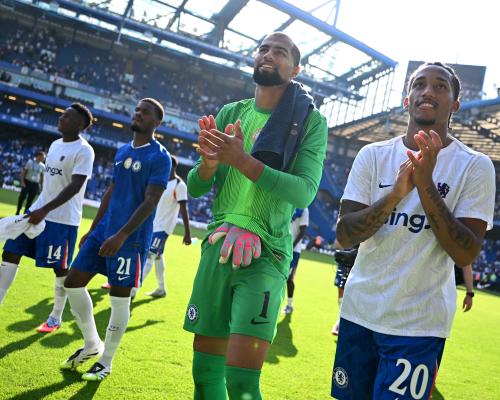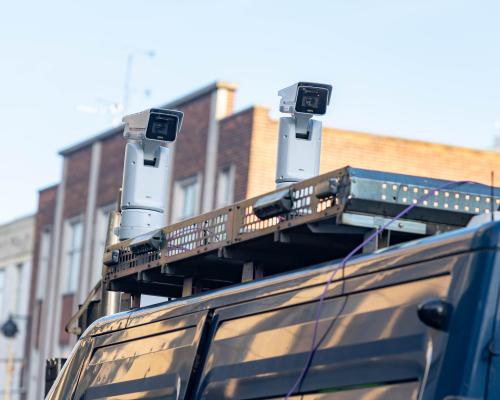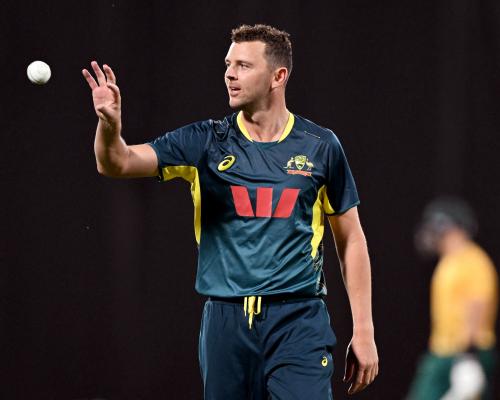
Crystal Palace may be disappointed the court of arbitration for sport ruled against them on Monday but at least they now know their fate. Imagine if all Premier League clubs were waiting for a court decision that would, in effect, determine whether the season would go ahead at all. That is the situation the 14 Indian Super League (ISL) teams find themselves in. The whole of football there has been waiting for a ruling from the supreme court. It was expected in mid-July but has still not arrived. The season is due to start in September. Or at least, it was.
The ISL, formed in 2013, has grown from eight teams to 14, becoming the top tier along the way. Football Sports Development Ltd (FSDL) runs the competition but put the 2025-26 season on hold on 11 July. At the time, despite the shock, most stakeholders felt it would go ahead but confidence, trust and bank balances have taken a turn for the worse.
Sunil Chhetri, the biggest name in the Indian game and the third-highest active international men’s goalscorer, summed it up. “When my phone went off a few weeks ago informing us of a delay in pre-season by a fortnight, I must admit it made me smile,” the 41-year-old wrote on social media. “And that’s because I was on vacation … I had more time than I had bargained to get in shape.
“That ‘fortnight’ has now changed to ‘indefinitely’ and that smile’s been wiped out … Everybody in the Indian football ecosystem is worried, hurt, scared about the uncertainty we are faced with.”
On Monday, the president of the All India Football Federation (AIFF), Kalyan Chaubey, used the c-word. “It is true that we are going through crisis for which we are not responsible,” he told the Press Trust of India. “Some self-claimed reformers with vested interests have created this situation. I believe, by the grace of God, we will collectively be able to tide over this crisis.”
It all stems from the fact that the 15-year Master Rights Agreement (MRA) between FSDL and the AIFF, which received more than £4m annually from its commercial partner, is due to end in December, before the season’s halfway point. There were discussions earlier this year and new proposals from FSDL but no deal was reached. Then the supreme court told the federation not to negotiate until it rules on the AIFF’s constitution. So nothing is happening.
The AIFF did not comment when contacted by the Guardian. A source close to FSDL said its hands were tied by the court. “FSDL made a leap of faith in Indian football 15 years ago,” the source said. “The current structure is atypical in football. Moving forward, there is a requirement to move to a structure in line with global best practices such as the Premier League, where the clubs are full or majority owners of the league themselves. The proposal was that clubs become majority owners of the league, with FSDL and the AIFF still involved as equity holders, so everyone has skin in the game and aligned incentives. AIFF prefers to continue with the fixed fee every year and that was the situation in April when the supreme court said that the AIFF needs to pause.”
Limbo, however, can be costly, as people still need to be paid. Even when there is football, most ISL clubs lose money. Revenue from a central broadcasting and sponsorship pool is pretty much cancelled out by the franchise fee that the owners – who range from the City Football Group to cricket stars such as Virat Kohli and Bollywood’s John Abraham – have to pay. Discussions on how the league is organised are welcome and necessary but are on the back burner for now. There are more pressing issues.
Three clubs have suspended salaries, football operations or both: Bengaluru, Chennaiyin and Odisha. The owner of Odisha, Rohan Sharma, gave his reasons.
“It becomes harder to justify to my stakeholders to sink Crs upon Crs [tens of millions of rupees] with nothing to show for it, and no end in sight,” he wrote on social media. “We have: no clarity when the League will Start, nowhere to practise/play/work in Odisha, no way to get sponsorship since there’s no season, no way to engage investors with an expiring participation agreement. We hoped something would give, but sadly it hasn’t.”
That applies not only to those who work for the clubs. The Times of India reported that nine concerned match officials had written to the AIFF. “The lack of certainty regarding continuation of ISL has created uncertainty around our future and could compel us to seek alternative employment,” the referees said. “[This] would not only impact our livelihoods but also affect the continuity and development of professional refereeing in India.”
On Friday, 11 ISL clubs wrote to the governing body in New Delhi to urge it to bring the seriousness of the situation to the attention of the supreme court, threatening legal action if this does not happen. It has become a big mess.
Ideally, the court rules sooner rather than later and then everything can fall into place. Sources say about six months are needed to play the league, which must finish by the last day of May, so there is some leeway. But with extra time needed for negotiations between the AIFF and FSDL, and then with broadcasters, sponsors, clubs and players, plus international windows, there is not much.





